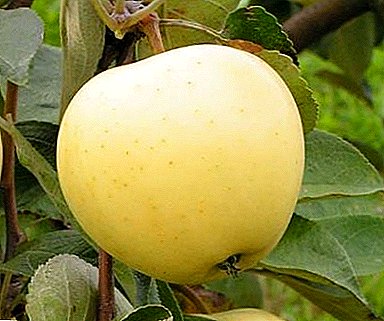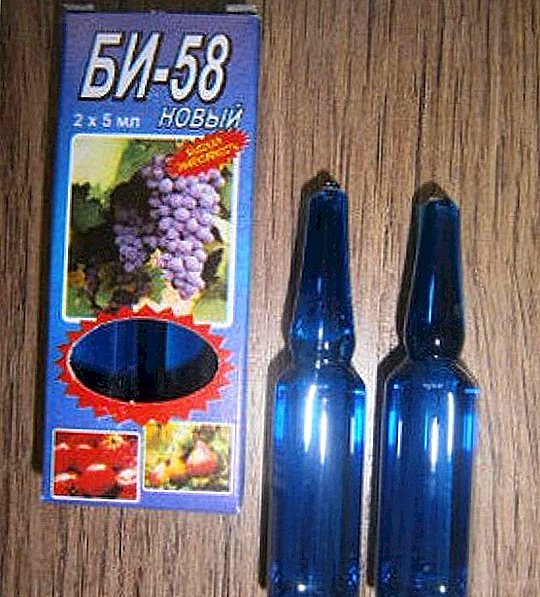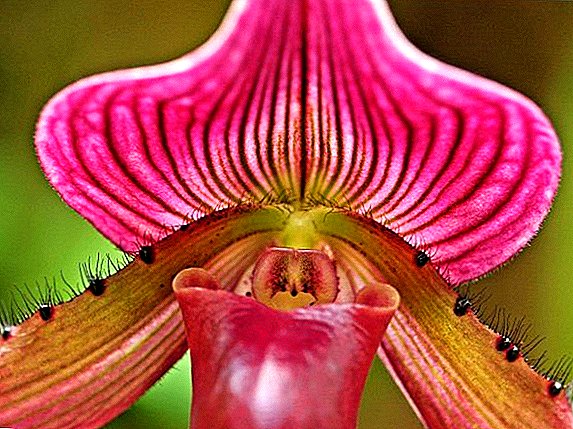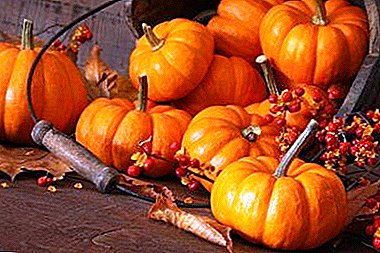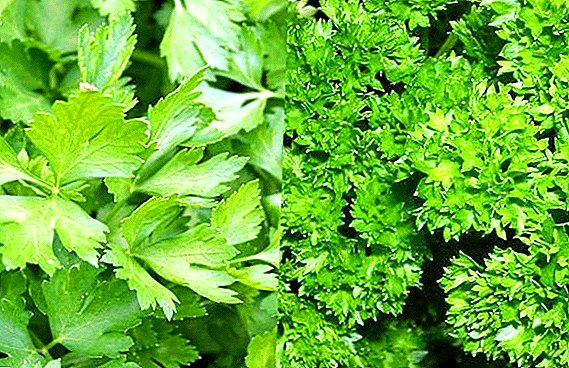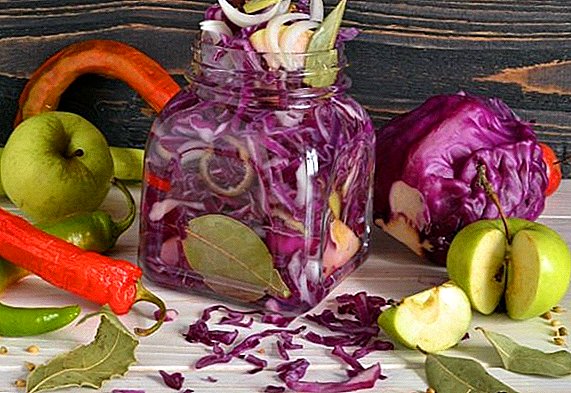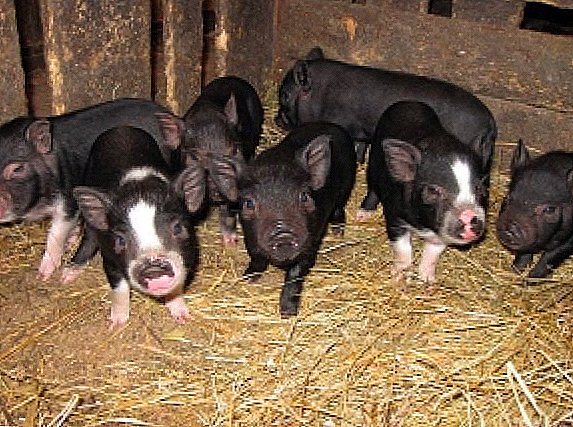 Probably everyone is familiar with the usual flower honey, which we used to treat colds, and just use as a pleasant, sweet dessert. However, far from always the product of beekeeping is processed nectar, and in addition to the flower there is another type of honey - honeydew. Let's find out how it turns out, how different it is and what benefits it brings to the body.
Probably everyone is familiar with the usual flower honey, which we used to treat colds, and just use as a pleasant, sweet dessert. However, far from always the product of beekeeping is processed nectar, and in addition to the flower there is another type of honey - honeydew. Let's find out how it turns out, how different it is and what benefits it brings to the body.
What is this honey and how does it differ from flower
During the heat, the plants stop producing nectar, and the bees are forced to switch to honeydew collectionformed on the leaves and trunks of trees, shrubs and other vegetation.  It also deals with honeydew - the allocation of some insects that live on plants - aphids, worms, bear, leaf leaves.
It also deals with honeydew - the allocation of some insects that live on plants - aphids, worms, bear, leaf leaves.
Important! Honeydew honey or its admixture is determined by the method of lime test. For this, one part of the product is mixed, one part of distilled water and ten parts of lime water and heated to boiling. In the presence of at least part of the honeydew honey should fall flakes.
Sources of collection
The product has two origins:
- Vegetable. Its source - honeydew - a sweetish sticky liquid that appears on plants under the influence of large temperature differences. It has a rather simple composition: water and grape or cane sugar. Such honey is detrimental to bees and cannot be left in the hive for the winter.
- Animal. It is obtained from honeydew - a sweet liquid, which is an excretion of insects that feed on vegetable sap. Appears on trunks, foliage of shrubs and trees, has a more complex composition: water, sugar, proteins, gum and other substances.

How to distinguish: honey card
To purchase a truly high-quality product, you should know some of the features:
- collection period - in summer and early autumn at high temperatures, the spring harvest is usually mixed with floral;
- aroma - absent or barely perceptible, without flower shades;
- Colour - dark (brown or brown), greenish shades are possible, light brown is extremely rare;
- taste - very sweet without aftertaste, malt can be felt and a bit bitter;
- crystallization time - long-term, thus forming a granular precipitate and a viscous product on the surface, prone to souring;
- viscosity - strong, combined with pronounced viscosity.
Did you know? Honey can retain its valuable properties for a very long time. Investigating the flower honey amphora, discovered at the opening of Tutankhamun’s grave, experts found that the valuable properties of the product remained virtually unchanged.
Chemical composition
Primarily, the composition is influenced by the origin of the product. So, in the west of Europe, the main part of honeydew honey is obtained from honeydew, so it is as rich as possible with useful substances and is valued even higher than the usual flower.
We advise to read about the differences and the healing properties of different types of honey: sunflower, buckwheat, lime, chestnut, akkuraevogo, espartsetovogo, Sweet Clover, fatselievogo, chernoklenovogo, rapeseed, kipreyny, cotton, Diaghilev, coriander, hawthorn, honeycomb, May, wild, mountain, with Royal jelly.
In our territory, the most frequent source of this product is pad, therefore it is considered less valuable and does not have much popularity.  On average, for the composition of the product is characterized by the following ratio:
On average, for the composition of the product is characterized by the following ratio:
- fructose and glucose - more than 65%,
- sucrose - 15%,
- polysaccharides - 11%,
- proteins - about 3%,
- minerals - up to 1%,
- water, other substances - the rest.
Honey obtained from honeydew has a high content of micro and macro elements, it is ten times more potassium than in the usual flower product.
Honey, the source of which was the fall of insects, has about 11% of proteins, acids and dextrins, which is three times more than in floral.
Important! There is no phytoncides in honeydew, distinguishing nectar and pollen of flowers and possessing properties of antibiotics. The product easily absorbs moisture and, having a large amount of dextrins, quickly sours.
The content of ash substances in the product is eight times higher than honey from flowers. It contains in high concentration: potassium, iron, manganese, magnesium, phosphorus, nitrogen, calcium, iodine and zinc.  Vitamin composition: vitamin C, niacin, pantothenic acid, lactoflavin, pyridoxine, folic acid.
Vitamin composition: vitamin C, niacin, pantothenic acid, lactoflavin, pyridoxine, folic acid.
The sugars are mainly disaccharides, which give it a thick and astringent structure that is poorly soluble in aqueous media.
Learn how to test honey for naturalness and melt candied honey at home.
Beneficial features
Honeydew honey has many wonderful qualities, namely:
- high potassium content is beneficial for the cardiovascular system: strengthens blood vessels and improves blood circulation;
- saturation with B vitamins helps prevent insomnia, overstrain and has a beneficial effect on the nervous system;
- the complex of proteins, amino acids and enzymes in the pad of animal origin helps in solving problems of the gastrointestinal tract, diseases of the liver, gallbladder and pancreas;
- antioxidant properties contribute to the elimination of toxins and other harmful substances from the body;
- The complex of valuable trace elements has a positive effect on intestinal motility;
- a large amount of potassium, calcium and phosphorus helps to strengthen bone tissue;
- the product stimulates the body's defenses, helps with rehabilitation after injuries and accidents;
- Masked face improves skin nourishment, relieves swelling and reduces wrinkles;
- wraps reduce the appearance of cellulite, make scarring and stretching less noticeable.

Contraindications and precautions
Despite the many valuable properties of honeydew honey, do not forget about its potential harm. Recently, quite often there is an allergy to bee products. Mostly at risk are children and people with reduced immunity. They should be especially careful with the product and first check the body's response to it.
Artificial honey without bees can be prepared at home with the help of sugar and dandelions, pumpkin, watermelon, pine cones.
People who are overweight or suffering from diabetes, before using the product is better to consult with your doctor. The same applies to those who have any serious or chronic illness.
In order to prevent, it is worth to use 1-2 tablespoons of honeydew honey per day and do not forget that heat treatment reduces the value of the product, therefore it is better to eat it raw. Optionally, you can add it to warm tea (temperature up to 50 degrees Celsius).
Did you know? The famous expression "honeymoon" is of Norwegian origin. The fact is that in this country it was decided to use honey and drinks based on it in the first month after the wedding.
Video: what is honeydew honey
Unfortunately, some do not like honeydew honey, considering it "second-rate." However, despite the modest taste qualities, it is a very valuable product that has a beneficial effect on the human body. Do not neglect this wonderful natural medicine and be healthy!


